#AGRICULTURE
Explore tagged Tumblr posts
Text
Fossil fuels make it possible to grow crops in vast monocultures using pesticides instead of biodiversity to deter insects and employing energy-intensive synthetic fertilizers that actually deplete natural soil health and fertility. Fossil fuels also help make ultra-processed foods often the cheapest and most profitable to produce and sell, contributing to a global epidemic of diet-related ill-health. They allow our food to be grown in far-flung places and wrapped in plastic to sit on shelves for months on end, adding further to the carbon emissions bill as well as disrupting local foodways. This method of production also enables us to raise livestock on an industrial scale: Artificially cheap fossil fuel makes it economically feasible to grow vast monocultures of feed, primarily corn and soybeans, needed for Confined Animal Feeding Operations (CAFOs). The CAFO system, with its dependence on vast amounts of feed crops, has many knock-off climate effects. Soybean production in Brazil, one of the world’s largest exporters of soybeans for animal feed, has contributed to massive deforestation and land use change there, releasing locked-in carbon into the atmosphere. Mismanaged farm waste on CAFOs has a climate toll as well, responsible for as much as 7 percent of global farming emissions. And methane emissions from ruminants, like cattle, are another significant source of climate impacts. Fossil fuels have enabled us to soar past our ecological limits.
11 March 2025
32 notes
·
View notes
Text

#garlic#seeds#seed#agriculture#backyard#gardening#garden#fruit#vegetables#herbs#herb#foods#foodie#foodporn#food photography#foodgasm#food#ausgov#politas#auspol#tasgov#taspol#australia#fuck neoliberals#neoliberal capitalism#anthony albanese#albanese government#sesame seeds#chia seeds
67K notes
·
View notes
Text

130K notes
·
View notes
Text
I NEED TO KNOW I HAVE TO PROVE SOMETHING
i'm using seen as you have been in the general vicinity of a cow outside of a vehicle (driving down a highway thing). cows are a very big part of my life but i live in the usamerican south so i want to know. HAVE YOU SEEN/INTERACTED WITH COWS
4K notes
·
View notes
Text
"In some cities, as many as one in four office spaces are vacant. Some start-ups are giving them a second life – as indoor farms growing crops as varied as kale, cucumber and herbs.
Since its 1967 construction, Canada's "Calgary Tower", a 190m (623ft) concrete-and-steel observation tower in Calgary, Alberta, has been home to an observation deck, panoramic restaurants and souvenir shops. Last year, it welcomed a different kind of business: a fully functioning indoor farm.
Sprawling across 6,000sq m (65,000 sq ft), the farm, which produces dozens of crops including strawberries, kale and cucumber, is a striking example of the search for city-grown food. But it's hardly alone. From Japan to Singapore to Dubai, vertical indoor farms – where crops can be grown in climate-controlled environments with hydroponics, aquaponics or aeroponics techniques – have been popping up around the world.
While indoor farming had been on the rise for years, a watershed moment came during the Covid-19 pandemic, when disruptions to the food supply chain underscored the need for local solutions. In 2021, $6bn (£4.8bn) in vertical farming deals were registered globally – the peak year for vertical farming investment. As the global economy entered its post-pandemic phase, some high-profile startups like Fifth Season went out of business, and others including Planted Detroit and AeroFarms running into a period of financial difficulty. Some commentators questioned whether a "vertical farming bubble" had popped.
But a new, post-pandemic trend may give the sector a boost. In countries including Canada and Australia, landlords are struggling to fill vacant office spaces as companies embrace remote and hybrid work. In the US, the office vacancy rate is more than 20%.
"Vertical farms may prove to be a cost-effective way to fill in vacant office buildings," says Warren Seay, Jr, a real estate finance partner in the Washington DC offices of US law firm ArentFox Schiff, who authored an article on urban farm reconversions.
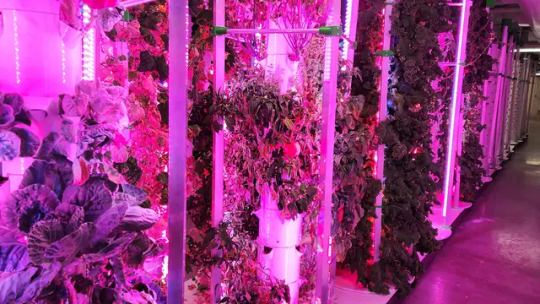
There are other reasons for the interest in urban farms, too. Though supply chains have largely recovered post-Covid-19, other global shocks, including climate change, geopolitical turmoil and farmers' strikes, mean that they continue to be vulnerable – driving more cities to look for local food production options...
Thanks to artificial light and controlled temperatures, offices are proving surprisingly good environments for indoor agriculture, spurring some companies to convert part of their facilities into small farms. Since 2022, Australia's start-up Greenspace has worked with clients like Deloitte and Commonwealth Bank to turn "dead zones", like the space between lifts and meeting rooms, into 2m (6ft) tall hydroponic cabinets growing leafy greens.
On top of being adaptable to indoor farm operations, vacant office buildings offer the advantage of proximity to final consumers.
In a former paper storage warehouse in Arlington, about a mile outside of Washington DC, Jacqueline Potter and the team at Area 2 Farms are growing over 180 organic varieties of lettuce, greens, root vegetables, herbs and micro-greens. By serving consumers 10 miles away or less, the company has driven down transport costs and associated greenhouse emissions.
This also frees the team up to grow other types of food that can be hard to find elsewhere – such as edible flower species like buzz buttons and nasturtium. "Most crops are now selected to be grown because of their ability to withstand a 1,500-mile journey," Potter says, referring to the average distance covered by crops in the US before reaching customers. "In our farm, we can select crops for other properties like their nutritional value or taste."
Overall, vertical farms have the potential to outperform regular farms on several environmental sustainability metrics like water usage, says Evan Fraser, professor of geography at the University of Guelph in Ontario, Canada and the director of the Arell Food Institute, a research centre on sustainable food production. Most indoor farms report using a tiny fraction of the water that outdoor farms use. Indoor farms also report greater output per square mile than regular farms.
Energy use, however, is the "Achilles heel" of this sector, says Fraser: vertical farms need a lot of electricity to run lighting and ventilation systems, smart sensors and automated harvesting technologies. But if energy is sourced from renewable sources, they can outperform regular farms on this metric too, he says.
Because of variations in operational setup, it is hard to make a general assessment of the environmental, social and economic sustainability of indoor farms, says Jiangxiao Qiu, a landscape ecologist at the University of Florida and author of a study on urban agriculture's role in sustainability. Still, he agrees with Fraser: in general, urban indoor farms have higher crop yield per square foot, greater water and nutrient-use efficiency, better resistance to pests and shorter distance to market. Downsides include high energy use due to lighting, ventilation and air conditioning.
They face other challenges, too. As Seay notes, zoning laws often do not allow for agricultural activity within urban areas (although some cities like Arlington, Virginia, and Cincinnati, Ohio, have recently updated zoning to allow indoor farms). And, for now, indoor farms have limited crop range. It is hard to produce staple crops like wheat, corn or rice indoors, says Fraser. Aside from leafy greens, most indoor facilities cannot yet produce other types of crops at scale.
But as long as the post-pandemic trends of remote work and corporate downsizing will last, indoor farms may keep popping up in cities around the world, Seay says.
"One thing cities dislike more than anything is unused spaces that don't drive economic growth," he says. "If indoor farm conversions in cities like Arlington prove successful, others may follow suit.""
-via BBC, January 27, 2025
1K notes
·
View notes
Text









Demeter
The roof of the cabin constructed of growing grass and has tomato vines growing on the walls.
#cabin 4#demeter#olympian#agriculture#harvest#ancient greek#greek gods#greek goddess#twelve olympians#mount olympus#alternative#aesthetic#dark academia#dark academic aesthetic#dark aesthetic#aestheitcs#dark#art#light acadamia aesthetic#light academia#greek mythology#mythology#percy jackson
1K notes
·
View notes
Text
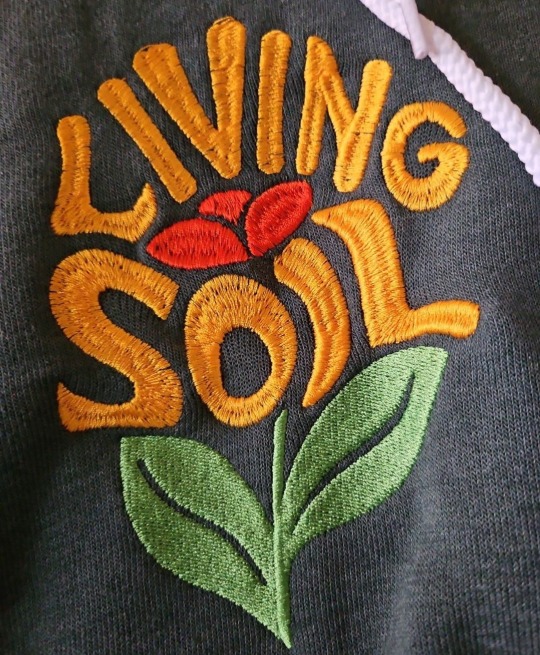

🌱✨️ "Living Soil" Embroidered Crewnecks & Hoodies ✨️🌱
Stay cozy while supporting soil health and sustainable farming 💚💛❤️
🌟 when you sign up for email offers and updates on our website, you get a chance to win up to 50% OFF your order!
🌟 FREE SHIPPING for orders over $50!!!
#soil health#soil science#soil#permaculture#environmental education#enviroment art#regenerative agriculture#regenerative farming#agriculture#sustainable living#sustainable farming#sustainability#organic life#organic matter#organic lifestyle#organic farming#organic#compost lifestyle#composting#compost#vermicompost#biodiversity#ecomindset#conservation#microbes#plant life#plant lover#street style#hippie#stoner society
547 notes
·
View notes
Text
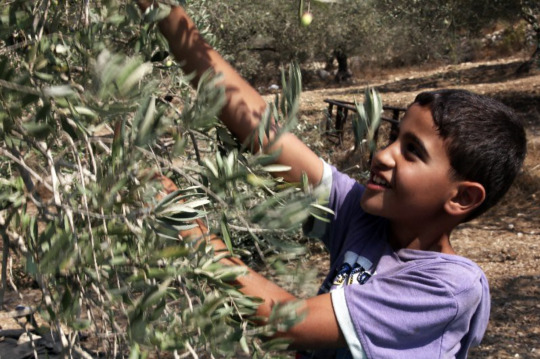
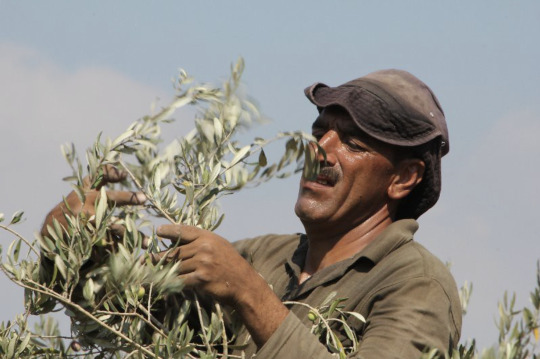
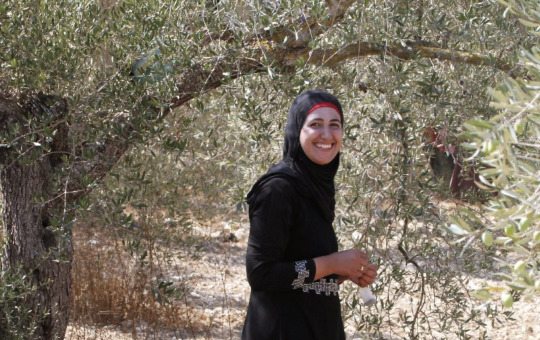
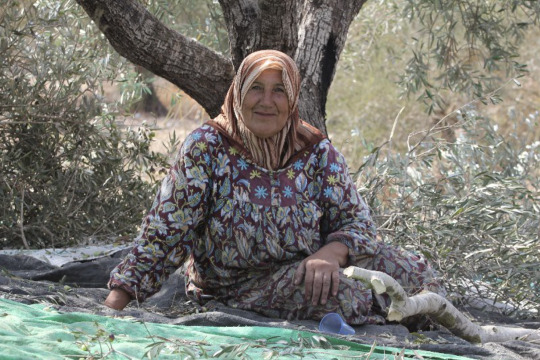
palestine, 2012
#free palestine#palestine#olive harvest#olive groves#trees#agriculture#pruning#flickr#oldweb#old web#2012
5K notes
·
View notes
Text

chemin champoux, saint-paul-de-joliette
643 notes
·
View notes
Text




Oh, this will end badly.
So many middle class farmers are screwed under Trump?
388 notes
·
View notes
Text
The global food economy is massively inefficient. The need for standardized products means tons of edible food are destroyed or left to rot. This is one reason more than one-third of the global food supply is wasted or lost; for the U.S., the figure is closer to one-half. The logic of global trade results in massive quantities of identical products being simultaneously imported and exported—a needless waste of fossil fuels and an enormous addition to greenhouse gas emissions. In a typical year, for example, the U.S. imports more than 400,000 tons of potatoes and 1 million tons of beef while exporting almost the same tonnage. The same is true of many other food commodities and countries. The same logic leads to shipping foods worldwide simply to reduce labor costs for processing. Shrimp harvested off the coast of Scotland, for example, are shipped 6,000 miles to Thailand to be peeled, then shipped 6,000 miles back to the UK to be sold to consumers. The supposed efficiency of monocultural production is based on output per unit of labor, which is maximized by replacing jobs with chemical- and energy-intensive technology. Measured by output per acre, however—a far more relevant metric—smaller-scale farms are typically 8 to 20 times more productive.
5 November 2024
1K notes
·
View notes
Text

In the 1980s, new laws and court rulings made it easier to patent seeds, which are now owned by companies like Monsanto and DuPont. Farmers who save and use patented seeds can be accused of patent infringement.
https://grain.org/en/article/5142-seed-laws-that-criminalise-farmers-resistance-and-fightback
421 notes
·
View notes
Text

2K notes
·
View notes
Text




flenserpostings
#art#drawing#character design#the flenser#chat pile#planning for burial#have a nice life#ragana#midwife#mamaleek#uboa#agriculture#wreck and reference#amulets#drowse#scarcity#bosse-de-nage#succumb#street sects
670 notes
·
View notes
Text
"In a degraded and semi-arid farming area in India, simple science-driven changes to the landscape have colored the horizon, and a village’s fortunes, with green.
In the Latur district in the central western state of Maharashtra, 40 years of erratic rainfall, groundwater depletion, soil erosion, and crop failures have impoverished the local people.
In the village of Matephal, the International Crops Research Institute for the Semi-Arid Tropics (ICRISAT) launched a project in 2023 that aimed at addressing these challenges through integrated landscape management and climate-smart farming practices. [Note: Meaning they've achieved this much in just two years!]
Multiple forms of data collection allowed ICRISAT to target precise strategies for each challenge facing the 2,000 or so people in Matephal.

Key interventions focused on three critical areas: water conservation, land enhancement with crop diversification, and soil health improvement. Rainwater harvesting structures recharged groundwater around 1,200 acres, raising water tables by 12 feet and securing reliable irrigation. Farm ponds provided supplemental irrigation, while embanking across 320 acres reduced soil erosion.
Farmers diversified their crops, converting 120 or so acres of previously fallow land into productive farmland with legumes, millets, and vegetables. Horticulture-linked markets for fruits and flowers improved income stability.
Weather monitoring equipment was also installed that actively informed sustainable irrigation practices.
“It is a prime example of how data-driven approaches can address complex agricultural challenges, ensuring interventions are precise and impactful. Matephal village is a model for other semi-arid regions in India and beyond,” said Dr. Stanford Blade, Director General-Interim at ICRISAT.
Farmers actively participated in planning and decision-making, fostering long-term commitment.
“This ICRISAT project improved yields, diversified crops, and boosted incomes. It also spared women from walking over a kilometer for drinking water, now available in the village for people and animals,” said Mr. Govind Hinge of Matephal village.
Looking ahead, ICRISAT writes it wants to use Matephal as a case study to scale these methods across India’s vast and drier average. As Matephal’s fields flourish, the village is a testament to the power of collaboration and science in transforming lives and landscapes."
youtube
-Article via Good News Network, March 3, 2025. Video via International Crops Research Institute for the Semi-Arid Tropics (ICRISAT), February 26, 2025
#india#tropics#maharashtra#farming#agriculture#sustainable agriculture#water scarcity#drought#farmers#good news#hope#Youtube#video#climate crisis#climate action#climate resilience
668 notes
·
View notes